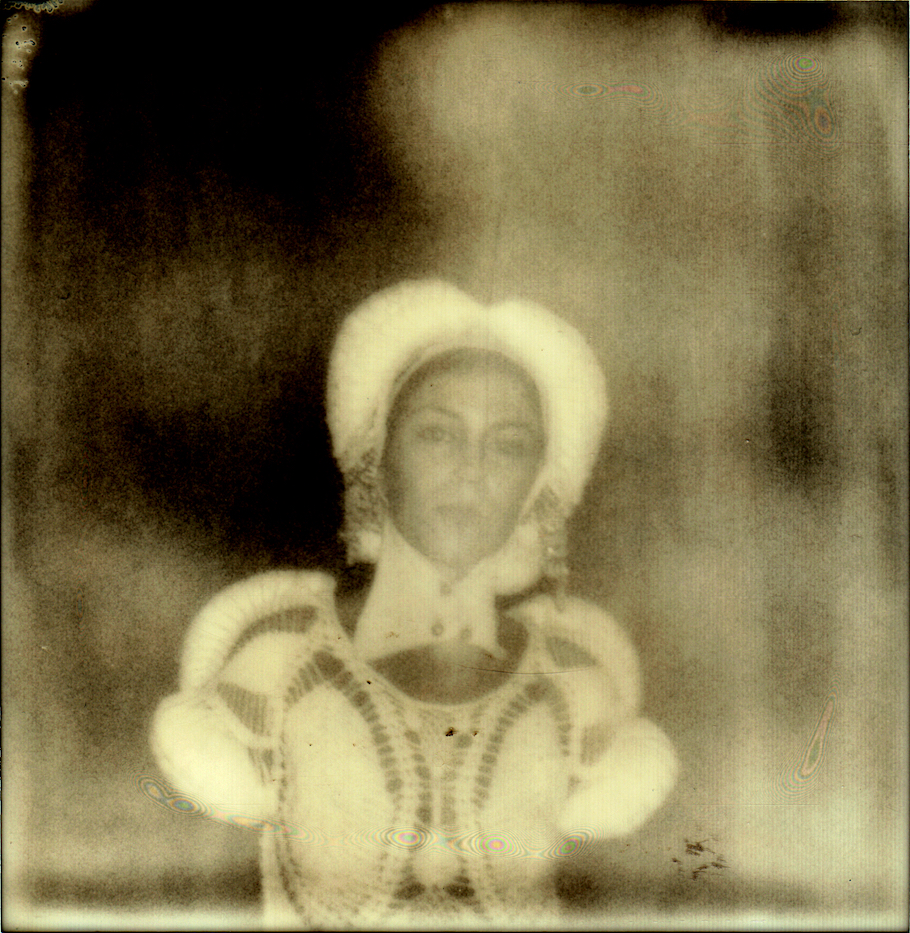
Marina Herlop is often described as a pianist, a lingering remnant of her classical training. But what strikes the listener on Herlop’s breakout track miu is the intricate trickery of her voice, tracing rhythmical clusters around the subtlest of musical beds, in a technique inspired by Carnatic music of Southern India.
miu, the opening track of Herlop’s new studio album Pripyat, was among the first songs that the young Catalan artist made on a computer, after two albums – 2016’s Nanook and 2018’s Babasha – that brought spectral elegance to the sound of piano and voice. This spirit of adventure continues into Pripyat, Herlop’s first full album produced on a computer, and her most intensely emotional work to date.
Listening to Pripyat you can feel the emotional toil and creative endeavour that went into the record. Fans of Nanook and Babasha will recognise the combination of melancholic piano and elegant vocal lines that is found on Pripyat tracks like abans abans. But Pripyat has a far fuller, almost chaotic sound when compared to Herlop’s previous work, with the addition of electronic drums, electric bass lines and a wealth of sublime production effects.
Added to this production expertise are songs of incredible grace and poise. Kadish is a spectral torch song rendered in emotional 3D by Herlop’s gorgeous voice; ubunto has a feeling of deep longing and lingering sorrow; and shaolin mantis is like a pop song refracted through disorienting production effects and percussive vocal cut ups.

Marina Herlop studied piano as a child for a few years, then quit during adolescence and resumed music studies at the age of 20. From 22 to 25 she was immersed in the music Conservatory, period in which she started using her piano and voice as the only tools to make music and experiment with harmony and melody. When she gathered a bunch of songs she recorded what would be her first album Nanook (Instrumental Records, 2016).
In her second album Babasha (Aloud Music Ltd, 2018) she worked together with a producer who added synths and sfx as extra layers to her compositions, a process that let her comprehend the basics of Ableton, sound cards, wires and kobs, and since then she started producing her own music in a more electronic way. As she had been attached to the piano from the beginning of her music career, this new album Pripyat is a sort of overshoot on the other direction: there’s a lot of rhythm and timbre experimentation, riffs, beat and voice harmonisation, because she felt eager to explore those other areas. No matter what devices she uses, what defines Marina Herlop’s music is the aim to drag it to the future and find formulas that she herself finds emotional and aesthetic enough. This premise has been guiding her creative processes since the beginning, giving a solid coherence to all of her work.

玛丽娜·赫洛普(Marina Herlop)经常被描述为钢琴家,是她古典训练的挥之不去的残余。但是,在 Herlop 的突破性曲目 miu 中,让听众印象深刻的是她声音的复杂技巧,在最微妙的音乐床周围追踪有节奏的集群,这种技巧的灵感来自印度南部的卡纳提克音乐。
miu 是 Herlop 的新录音室专辑 Pripyat 的开场曲,是这位年轻的加泰罗尼亚艺术家在计算机上制作的第一首歌曲之一,此前两张专辑——2016 年的 Nanook 和 2018 年的 Babasha——为钢琴和人声的声音带来了光谱般的优雅。这种冒险精神一直延续到普里皮亚季,这是 Herlop 在电脑上制作的第一张完整专辑,也是她迄今为止情感最强烈的作品。
聆听 Pripyat,您可以感受到唱片中的情感辛劳和创造性努力。 Nanook 和 Babasha 的歌迷会认出忧郁的钢琴和优雅的声线的结合,这些在普里皮亚季的曲目中可以找到,例如 abans abans。但与 Herlop 之前的作品相比,Pripyat 的声音更加饱满,几乎是混乱的,增加了电子鼓、电贝司和丰富的制作效果。
除了这种制作专业知识之外,还有令人难以置信的优雅和沉着的歌曲。 Kadish 是一首由 Herlop 华丽的声音以情感 3D 呈现的幽灵火炬歌曲; ubunto有一种深深的思念和挥之不去的悲伤;而少林螳螂就像一首流行歌曲,通过迷失方向的制作效果和打击乐的声音剪辑折射出来。 Pripyat 是电脑制作诡计和亲密情感释放的完美结合。





